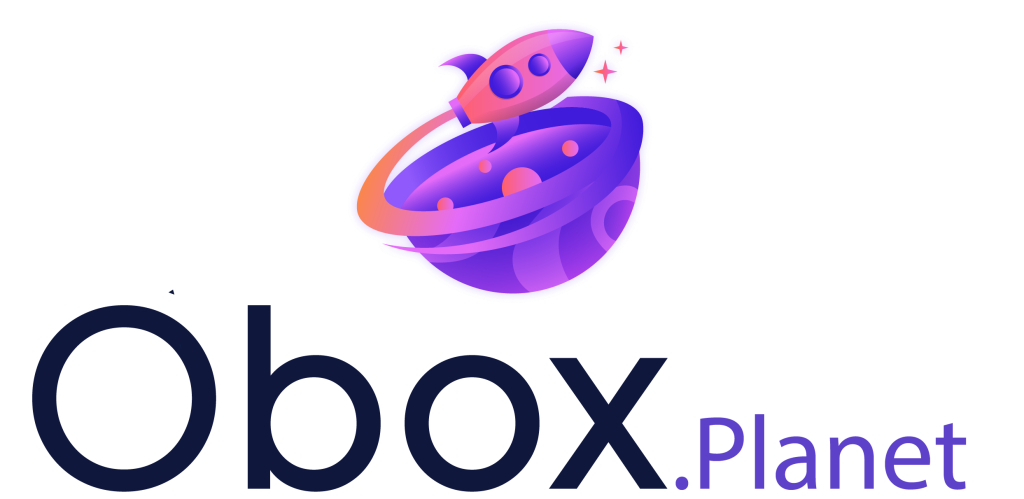Lab d1: Money, Inflation, Gold, Bitcoin
Money, Inflation, Gold, Bitcoin
On the OboxPlanet, there is one worldwide monetary system based on gold. Because the supply of gold is growing at a rate smaller than economic goods and services, prices are constantly falling. There are no economic ups and downs, just steady growth. In contrast, economic ups and downs on earth are costing many percentages of lost economic growth and wealth creation, not to speak of the mess with all the different currency regions and financial regulations.
Why gold? Throughout history, gold has emerged times and again as the “natural” money, the most suitable good for indirect exchanges. To be honest, whether the money on the OboxPlanet is gold or something else is interesting, but not decisive. If something like bitcoin has replaced gold by voluntary choice, this means that the new money must be something even better than gold.
Since the amount of gold is growing slower than economic growth, prices on OboxPlanet are steadily falling, like they did on earth throughout the 19th century. This steady and predictable path allows businesses to plan with more precision and certainty. There are fewer surprises and miscalculations which in turn means more wealth creation. Falling prices in turn allow people to build up savings with minimum effort and without the help of expensive and speculative financial products and consultants. Just like in old times, you can simply put gold coins under your mattress and see how their value increases over time.
The monetary system is mostly a “100 reserve”- system. One main functions of the financial system is facilitating financial transactions and gold storage. Since banks can only loan out what savers save and this reduces the need for complicated financing models, hedging political risks and inflation. The whole financial sector is but a small fraction compared to the earth.
 Until about one hundred years ago, gold was the worldwide money on Earth. Then, the states have, step by step, separated their national currencies from gold. In 1971, President Nixon cut all ties of the Dollar to gold, which means that today, all monetary systems on Earth are produce by states. States, and state controlled institutions like the European Union, have almost complete control over the production of money.
Until about one hundred years ago, gold was the worldwide money on Earth. Then, the states have, step by step, separated their national currencies from gold. In 1971, President Nixon cut all ties of the Dollar to gold, which means that today, all monetary systems on Earth are produce by states. States, and state controlled institutions like the European Union, have almost complete control over the production of money.
The OboxPlanet has no states. There, Gold is still the foundation of the money that is used all over the planet.
Wait a minute, you might ask, what about Bitcoin? If the OboxPlanet is far advanced technologically, don’t they use some type of digital money like Bitcoin? To be honest, we cannot know for certain. The most important advantage of Bitcoin compared to todays paper money is that it’s total amount is limited to 21 mio. pieces. It makes Bitcoin stable and predictable. Gold is not quite as predictable, because we cannot know with precision the amount of gold produced next year. However, compared to the state controlled paper money, gold is, let’s say, 95% more predictable. Bitcoin may be 99% more predictable. On Earth, Bitcoins 99% advantage may some day lead to a replacement of the highly uncertain paper moneys. Whether the “99% Bitcoin” would ever replace the “95% gold” on the OboxPlanet, we cannot say for sure.
What we can say is that the worldwide gold standard on the OboxPlanet is a single worldwide currency which allows for easy and worldwide payments and trade. There is no need to hedge exchange rates or for states and central banks to intervene and hamper trade, which on Earth produces huge costs and inefficiencies.
Since the supply of gold grows at a slower rate than economic goods and services, prices are constantly decreasing, just like on Earth in the 19th century. Additionally, the amount of new gold compared to all the existing gold, the so-called “stock-flow” ratio, is extremely small and getting ever smaller, making for a very constant and predictable increase.
This predictable increase of the value of money offers huge savings and economic efficiencies. Businesses firms can plan with greater precision and certainty and this leads to lower interest rates, to fewer surprises and misguided investments. There are no reasons for wholesale economic fluctuations, for “booms and busts”, which in and by itself produces huge wealth increases compared to today’s Earth.
Moreover, falling prices allow individuals to accumulate savings effortlessly, without relying on expensive and speculative financial products or consultants. Just like in ancient times, one can simply stash gold coins under their mattress and witness their value increase over time. In fact, the financial sector on the planet is only a fraction of the size compared to Earth’s.
Since the amount of gold compare to the amount of goods and services is constantly getting smaller, one gold-coin could buy ever more and coins are not used as means for payment. There are bank-notes and coins in use, plus electronic payments and technologies we cannot yet imagine. The important point is that they are 100% backed by gold (or some digital money). People like to use cash for privacy purpose, although the privacy issue is much less of an issue than on Earth because there are no states that want to control people for tax reasons or for whatever. See f4 “data privacy”
For the specialists: It is possible that we could find some fractional reserve banking examples on the OboxPlanet. Banks compete by showing high capital and liquidity ratios. There is no banking regulation and no lender of last resort. Some banks go bust from time to time (buch much less often than on Earth). Stockholders and bondholders have lost money, however, depositors usually got their money back. Also important: As central banks don’t inflate their currencies and create booms and busts, the economy of Obox is much more stable. Asset prices are lower; in general, speculation (in real estate, bitcoin, the latest tech fad etc.) is unknown on Obox, as credit and money aggregates are stable. Asset price inflation is a major reason for rising inequality – on Obox, there may therefore even be less inequality than on Eart

What experiences on Earth, past and present, help us understand life on the OboxPlanet?
Throughout history, countless goods have served as a medium exchange: shells, nails, cows and cigarettes in wartime prisons. Obviously, some things are more useful and practical for exchange purposes and that is why, independently and all over the world, the two metals gold and silver have emerged as the most popular type of money.
Kings and states have tried to regulate money and use it for their purpose. The most popular measure was to compel everybody to use state-made coins and then to dilute the gold and silver content. The Roman rulers would print coins with their head on them and declare that they are worth “one John”. After a while, they would collect them and make new, similar-looking coins, with half gold and half copper This allowed them to make twice as many coins with the same amount of gold. The additional coins that could be printed were of course used to pay for state expenses.
We refer you to the fascinating histories on money and why these schemes often decided the fate of whole civiiziations.
Once again, beginning in the 19th century, the states grip on the monetary systems tightened. States started to coordinate worldwide and step by step move away from connecting money to gold until on August 15, 1971, Nixon cut the last tie of the Dollar to Gold and since then, states can print however much money they want.
The general effects are clear. Throughout the 19th century, the growth of products and services was faster than the production of gold, which meant that prices mostly kept decreasing. In the 20th century, and especially since the 1970’s, prices keep increasing, the purchasing power of one Dollar in 2023 is a small fraction of its purchasing power a hundred years ago.
Also, in the 19th century, all moneys were some weight in gold or silver and coud therefore be used worldwide and without the hassle of ever changing exchange rates.
Lastly, the manipulation of money lead to economic ups and downs , much greater than would be justified by “natural” events like changes in weather and agricultural harvests. This in turn influenced world history. One example is the great depression of around 1930, which contributed undoubtedly to the reasons for the second World War.


Now it’s your turn. Have you ever wondered why we need such a huge financial market, what banks really do and how much of your savings goes to fees for products that barely beat inflation? Can you imagine a world with one stable monetary system and no state barriers to transactions?
Things we could learn and implement from the OboxPlanet:
1. Use cash money. Every cash paiement is a vote for freedom, a vote for privacy. Just imagine, if 99% use plastic, retailers stop accepting cash and then it becomes easy for the state to outlaw it completely. That means the state controls your wallet. It can decide what you can and cannot buy, it can prohibit your buying meat, buy certain books, ration your gas consumption, prevent you from flying where you want to…
2. Eliminate legal restrictions on the use of money. Abolish the central banks and banking regulations.
3. Realize the Swiss Gold Coin Initiative, www.goldfranc.org

